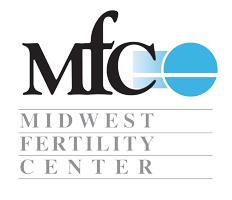As more people prioritize career, personal goals, or finding the right partner before starting a family, the trend of having children later in life is becoming increasingly common. However, trying to conceive after age 40 can pose unique challenges, primarily due to the natural decline in fertility with age. A key player in understanding fertility potential is Anti-Müllerian Hormone (AMH)—a simple blood test that provides valuable insight into ovarian reserve.
What is AMH?
AMH is a hormone produced by small, developing follicles in the ovaries. These follicles house eggs, and the number of them diminishes as a person ages. Measuring AMH levels offers a glimpse into the quantity of eggs remaining in the ovaries, often referred to as ovarian reserve. While AMH doesn’t directly predict the chances of pregnancy, it is a helpful tool for evaluating fertility potential and planning treatment strategies.
Why is AMH Important for Women Over 40?
Women are born with all the eggs they will ever have, and both the quantity and quality of these eggs decline significantly after the age of 35. By age 40, the decrease becomes even more pronounced. AMH serves as an indicator of whether there are sufficient eggs remaining to consider natural conception or fertility treatments.
Here are some key points about AMH in the context of pregnancy over 40:
- Low AMH and Fertility
Low AMH levels are common in individuals over 40, reflecting a reduced egg reserve. While this may sound discouraging, it’s important to remember that AMH is just one piece of the fertility puzzle. Egg quality and other factors such as uterine health and overall well-being also play crucial roles. - Predicting Response to Fertility Treatments
For individuals considering in-vitro fertilization (IVF), AMH levels help predict the likely response to ovarian stimulation. Lower AMH may indicate fewer eggs retrieved during an IVF cycle, but successful pregnancies are still possible with individualized treatment plans. - Natural Pregnancy vs. Assisted Reproductive Technology (ART)
While natural conception after 40 is more challenging, it is not impossible. However, for many women, ART such as IVF, egg freezing, or egg donation may improve the chances of success. Knowing your AMH levels early can help guide timely decisions about fertility preservation or treatment options.
Does a Low AMH Mean Pregnancy Isn’t Possible?
A low AMH level can feel like discouraging news, but it does not mean pregnancy is impossible. It’s important to note:
- Egg Quality Matters More Than Quantity
Even with low AMH levels, high-quality eggs can lead to a healthy pregnancy. Unfortunately, as age increases, egg quality also declines, so this is an important consideration for women over 40. - Fertility is Multifaceted
AMH is one measure of ovarian reserve, but it doesn’t account for other crucial factors like sperm quality, uterine health, and lifestyle factors such as diet, stress, and exercise. - Fertility Treatments Are Advancing
Modern advancements in reproductive medicine offer options like tailored IVF protocols, preimplantation genetic testing (PGT) to select embryos with the best chance of success, and egg donation for those with diminished reserves.
Tips for Optimizing Fertility After 40
If you’re over 40 and hoping to conceive, consider these steps to improve your chances:
- Get a Comprehensive Fertility Assessment
Alongside AMH testing, other evaluations like antral follicle count (AFC), hormonal testing, and semen analysis can provide a more complete fertility picture. - Adopt a Healthy Lifestyle
Eating a nutrient-rich diet, maintaining a healthy weight, avoiding smoking, and managing stress can improve overall reproductive health. - Seek Guidance Early
If you’ve been trying to conceive for six months without success, consult a fertility specialist. Early intervention is key. - Explore Fertility Preservation
If you’re not ready to conceive immediately, freezing eggs or embryos can provide options for the future.
For women over 40, understanding AMH levels can be empowering. It provides a clearer picture of fertility potential and helps guide important decisions about family planning or fertility treatments. While AMH levels naturally decline with age, the journey to parenthood doesn’t have to end there. With the support of skilled fertility specialists and the latest reproductive technologies, many women over 40 successfully achieve their dream of parenthood.
If you’re considering pregnancy at this stage of life, connect with a trusted fertility clinic to explore your options and create a personalized plan. At Midwest Fertility Center https://mfcfamily.com/
we’re here to support your journey every step of the way.

